
Jove-Journal of Visualized Experiments
Scope & Guideline
Transforming Experiments into Visual Narratives
Introduction
Aims and Scopes
- Methodological Innovation:
JoVE emphasizes the introduction of novel experimental techniques and methodologies that advance the field of research. This includes detailed protocols that are designed to be easily replicated by other researchers. - Visual Documentation:
The journal prioritizes the use of video and visual aids to support the understanding of complex procedures, making it easier for researchers to learn and implement new techniques. - Interdisciplinary Approaches:
JoVE covers a wide range of scientific disciplines, including biology, chemistry, physics, and engineering, encouraging interdisciplinary collaborations and the sharing of best practices across fields. - Focus on Reproducibility:
By providing detailed experimental protocols and visualizations, JoVE aims to promote reproducibility in research, addressing a critical issue in the scientific community. - Educational Resource:
The journal serves as an educational tool for both new and experienced researchers, offering a platform for learning through visualized experimental procedures.
Trending and Emerging
- Organoid and 3D Culture Systems:
There is a growing emphasis on the use of organoids and three-dimensional culture systems to study human biology and disease models, providing more relevant biological contexts for drug testing and disease research. - Microfluidics and Lab-on-a-Chip Technologies:
Microfluidic devices are increasingly being utilized for high-throughput screening and precise manipulation of biological samples, allowing for more controlled experiments and better data acquisition. - Gene Editing and CRISPR Technologies:
The application of CRISPR and other gene-editing technologies is expanding, with a focus on their use in various organisms, including plants, animals, and human cells, to study gene function and develop new therapies. - Real-time Imaging Techniques:
Advancements in imaging technologies, such as two-photon microscopy and live-cell imaging, are enabling researchers to observe dynamic processes in real-time, enhancing our understanding of cellular functions. - Integration of AI and Machine Learning:
The incorporation of artificial intelligence and machine learning in data analysis and experimental design is emerging as a significant trend, helping to manage and interpret complex datasets more effectively.
Declining or Waning
- Traditional In Vivo Models:
While in vivo models remain important, there has been a noticeable shift towards more sophisticated, refined models that offer better control and reproducibility, such as organoids and microphysiological systems. - Basic Histological Techniques:
Basic histological methods have become less frequently published as researchers move towards more advanced imaging techniques and molecular assays that provide deeper insights into cellular behavior. - Conventional Cell Culture Methods:
Standard two-dimensional cell culture methods are being replaced by three-dimensional culture systems and organoid models, which better mimic in vivo environments and cellular interactions. - Single-Cell Analysis Techniques:
As technologies advance, traditional bulk analysis methods are becoming less common in favor of single-cell sequencing and analysis techniques that offer more detailed insights into cellular heterogeneity.
Similar Journals
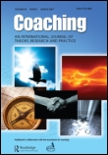
Coaching-An International Journal of Theory Research and Practice
Elevating Coaching Through Theory and PracticeCoaching: An International Journal of Theory Research and Practice, published by Taylor & Francis Ltd, is a premier academic journal dedicated to advancing the field of coaching through rigorous research and practical applications. With an ISSN of 1752-1882 and an E-ISSN of 1752-1890, this journal encapsulates the diverse disciplines of Developmental and Educational Psychology, Organizational Behavior and Human Resource Management, and Social Psychology. Currently ranked within the top tiers of these fields, including a Q2 ranking in Organizational Behavior and Human Resource Management, the journal has become a vital resource for practitioners, scholars, and students alike. The journal's scope includes an exploration of coaching methods, theories, and outcomes, contributing significantly to the ongoing discourse in the coaching community. As it continues to expand its impact from its inception in 2010 to 2024 and beyond, Coaching invites contributors to provide insights that shape the future of coaching practice and research across the globe.

Multiscale and Multidisciplinary Modeling Experiments and Design
Bridging disciplines to tackle the challenges of modern science.Multiscale and Multidisciplinary Modeling Experiments and Design is a dynamic journal published by SPRINGERNATURE, dedicated to advancing the fields of applied mathematics, materials science, and mechanics of materials. With an ISSN of 2520-8160 and an E-ISSN of 2520-8179, this journal provides a platform for innovative research and multidisciplinary approaches that address complex modeling and experimental challenges from 2018 to 2024. Ranked in the Q3 quartile across its categories and holding respectable positions within Scopus rankings, it serves as a vital resource for researchers and professionals seeking to explore emerging techniques and solutions in their fields. Despite its recent inception, Multiscale and Multidisciplinary Modeling Experiments and Design fosters a collaborative environment for knowledge exchange, making it essential for anyone at the forefront of scientific discovery. Open access availability ensures that the groundbreaking research published within is accessible to a broad audience, promoting global collaboration and innovations.
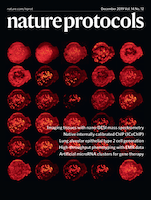
Nature Protocols
Unlocking the Secrets of ReproducibilityNature Protocols, published by NATURE PORTFOLIO, is a premier academic journal specializing in the dissemination of innovative and practical experimental methodologies in the vast field of biochemistry, genetics, and molecular biology. With an impressive Scopus rank of #5 out of 221 journals and a 97th percentile status, it stands firmly in the Q1 quartile, reflecting its integral role in advancing scientific knowledge. Established in 2006, this journal provides an invaluable resource for researchers and practitioners aiming to refine their experimental techniques, ultimately driving forward the frontiers of life sciences. While currently operating under a subscription model, the journal continues to be a pivotal platform for sharing high-quality, peer-reviewed protocols that facilitate reproducibility and transparency in research. Addressing a global audience from its base in the United Kingdom, Nature Protocols is dedicated to fostering collaboration and innovation, making it indispensable for professionals and students engaged in cutting-edge scientific endeavors.

JOURNAL OF EXPERIMENTAL PSYCHOLOGY-GENERAL
Innovating Research in Developmental NeuroscienceJOURNAL OF EXPERIMENTAL PSYCHOLOGY-GENERAL, published by the American Psychological Association, is a leading journal in the field of experimental and cognitive psychology. With an ISSN of 0096-3445 and a robust impact factor that reflects its significant contribution to research, this journal serves as a premier outlet for empirical studies that advance our understanding of psychological processes across development and cognition. Covering a wide array of topics from developmental neuroscience to general psychology, it is categorized in the Q1 quartile across multiple fields, making it a vital resource for researchers, professionals, and students alike. The journal has maintained a consistent publication record since its inception in 1975, continuously freeing insights that shape the future of psychology and related disciplines. With rigorous peer review and high standards of scholarly excellence, JOURNAL OF EXPERIMENTAL PSYCHOLOGY-GENERAL remains an essential platform for disseminating innovative psychological research.

Ukrainian Journal of Physics
Fostering Interdisciplinary Research in Physical SciencesUkrainian Journal of Physics, published by the Bogolyubov Institute for Theoretical Physics of the National Academy of Sciences of Ukraine, stands as a significant platform for the dissemination of research in the dynamic field of physics. With its ISSN 2071-0186 and E-ISSN 2071-0194, the journal aims to foster academic dialogue and innovation among researchers, professionals, and students alike. Recognized with a Scopus ranking that places it in the 26th percentile, the journal offers an array of contributions spanning various domains, including general physics and astronomy. Although currently categorized in the Q3 quartile for 2023, it seeks to elevate its scholarly impact while providing open access to its contents, facilitating wider availability and engagement. With a commitment to publishing high-quality research from 2007 to 2024, the journal embraces interdisciplinary approaches to physics, making it an invaluable resource for anyone dedicated to advancing their understanding and exploration of physical sciences.

Biology Methods & Protocols
Transforming research practices with pioneering biological methods.Biology Methods & Protocols is a pioneering open-access journal published by Oxford University Press, dedicated to advancing the field of biological research through the dissemination of cutting-edge methodologies and protocols. Since its inception in 2016, the journal has established a prominent presence in the academic community, achieving an impressive Q1 ranking in Agricultural and Biological Sciences (miscellaneous) and a Q2 ranking in Biochemistry, Genetics, and Molecular Biology (miscellaneous) as of 2023. With a Scopus rank that places it among the top 69% in its field, the journal serves as an essential resource for researchers, practitioners, and students seeking reliable and innovative techniques for their experiments. The publication not only promotes the sharing of high-quality protocols that can be readily adopted in laboratories globally but also encourages collaboration and knowledge sharing among scientists. Embracing an open-access model, Biology Methods & Protocols ensures that vital advancements in biological methodologies are accessible to all, thereby fostering a more inclusive scientific community.

Methods and Protocols
Unlocking the potential of biochemistry and biotechnology.Methods and Protocols is a prestigious open-access journal published by MDPI, focusing on the critical domain of biochemistry, genetics, molecular biology, and biotechnology. Launched in 2018 and based in Basel, Switzerland, the journal provides a vital platform for sharing innovative methodologies and experimental protocols that advance scientific research and development. With an impressive Q2 ranking in multiple categories, including Biochemistry, Genetics and Molecular Biology, and Biotechnology, it fosters a collaborative environment for researchers and professionals to disseminate their findings. With a mission to enhance reproducibility and transparency in scientific inquiry, Methods and Protocols not only serves as an essential resource for academia but also contributes to the practical application of research in various industries. The journal's open-access model ensures that cutting-edge research is accessible to a global audience, thus promoting knowledge sharing and inspiring future innovations within the scientific community.
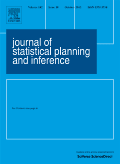
Journal of Statistical Planning and Inference
Connecting Scholars to the Heart of Statistical ScienceThe Journal of Statistical Planning and Inference, published by ELSEVIER, stands as a significant platform within the fields of applied mathematics and statistics. With a history of rigorous scholarship since its inception in 1977, this journal provides a vital forum for researchers to share their advancements in statistical methodologies, planning, and inference techniques. As of 2023, it holds a respectable impact factor reflected in its Q2 rankings across multiple categories, including Applied Mathematics and Statistics and Probability, showcasing its influence and relevance in academic discourse. The journal is indexed in Scopus, with commendable rankings that affirm its scholarly merit, making it vital for professionals and students seeking the latest developments and research trends in statistical sciences. With a commitment to high-quality publications aimed at fostering innovation and practical solutions in statistical applications, the Journal of Statistical Planning and Inference is essential for anyone involved in empirical research and data-driven decision-making.
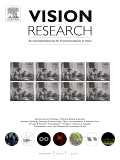
VISION RESEARCH
Illuminating the complexities of vision.VISION RESEARCH, published by PERGAMON-ELSEVIER SCIENCE LTD, is a leading journal in the field of visual sciences, focusing on the diverse aspects of ophthalmology and sensory systems. With a rich publication history dating from 1961 and extending into 2024, this journal has become a cornerstone for researchers and practitioners alike, offering critical insights into vision science. The journal holds a commendable Q2 ranking in Ophthalmology and a Q3 ranking in Sensory Systems, evidencing its significant contribution to these fields. VISION RESEARCH also boasts a respectable Scopus ranking, placing it in the 66th percentile for Ophthalmology and 46th percentile for Neuroscience. Although it is not an Open Access journal, readers can access its impactful research through various academic institutions. With its emphasis on innovative research and developments in understanding visual perception, VISION RESEARCH is an essential resource for scientists, clinicians, and students dedicated to advancing the understanding of vision and its associated mechanisms.
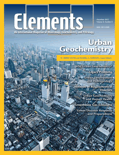
Elements
Pioneering Research in Mineralogy and BeyondElements is a premier academic journal published by the Mineralogical Society of America, dedicated to advancing knowledge in the fields of Earth and Planetary Sciences and Geochemistry and Petrology. Since its inception in 1973, this journal has established itself as a leading source of impactful research, evidenced by its prestigious Q1 rankings in both categories in 2023, placing it among the top journals globally with Scopus ranks of #18 and #23, respectively. Elements is uniquely positioned to foster interdisciplinary dialogue, offering a platform for groundbreaking studies that explore the fundamental processes shaping our planet. Although it operates without an open access model, its rigorous peer review process guarantees the integrity and quality of published work, making it an essential resource for researchers, professionals, and students eager to stay abreast of the latest developments in mineralogy and earth sciences. With a commitment to excellence, Elements continues to push the boundaries of our understanding of geological phenomena and their implications for both science and society.